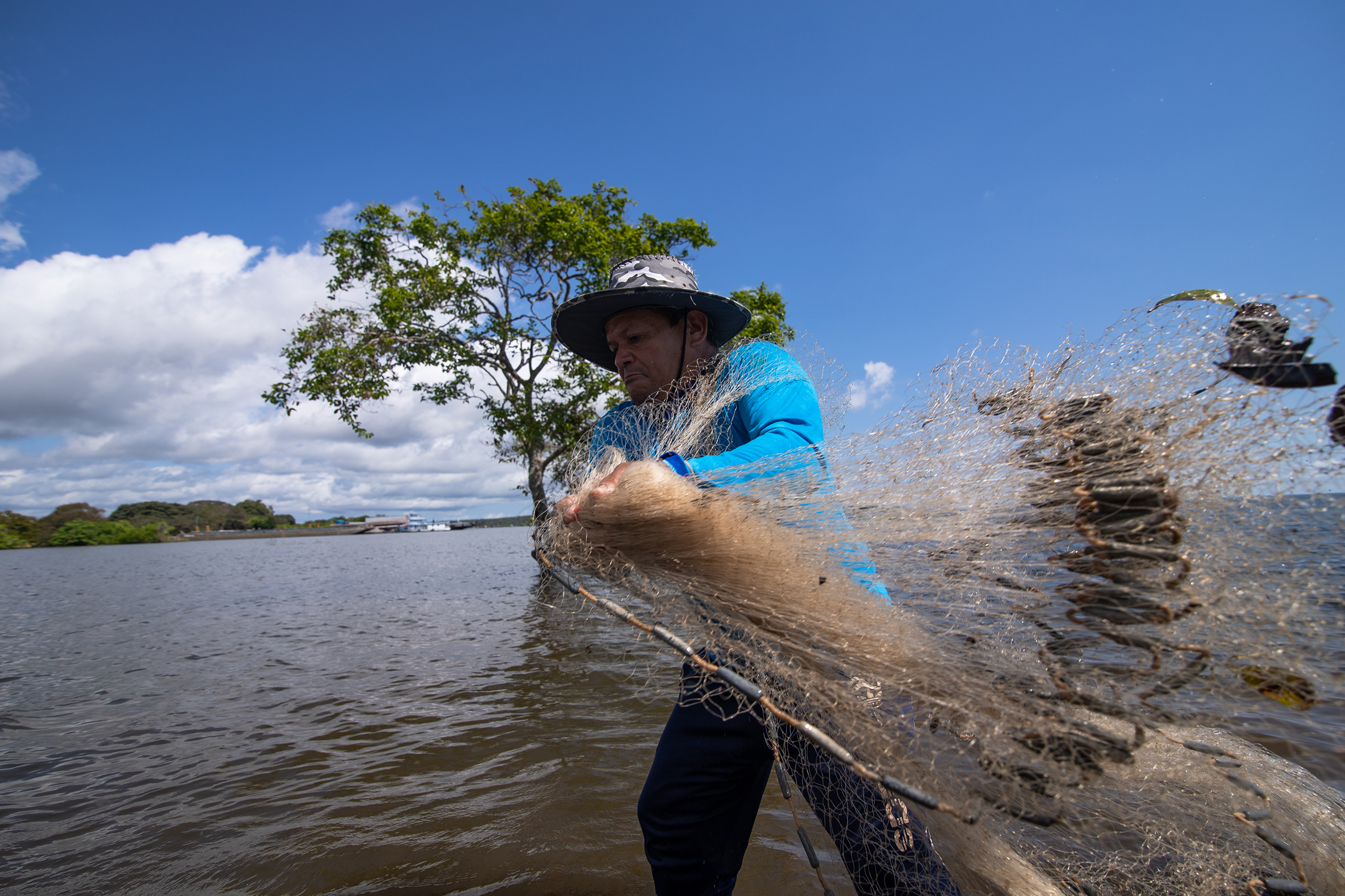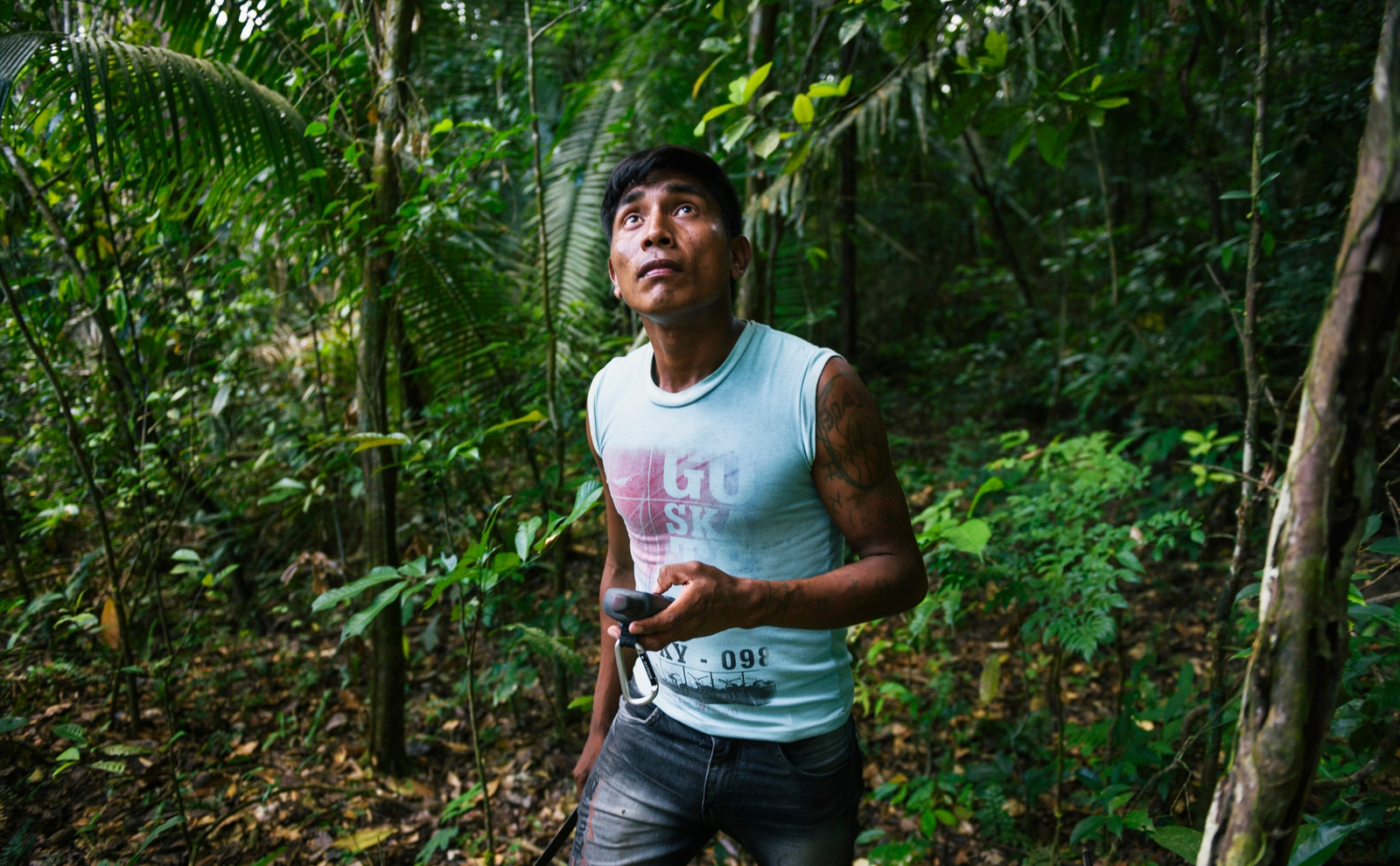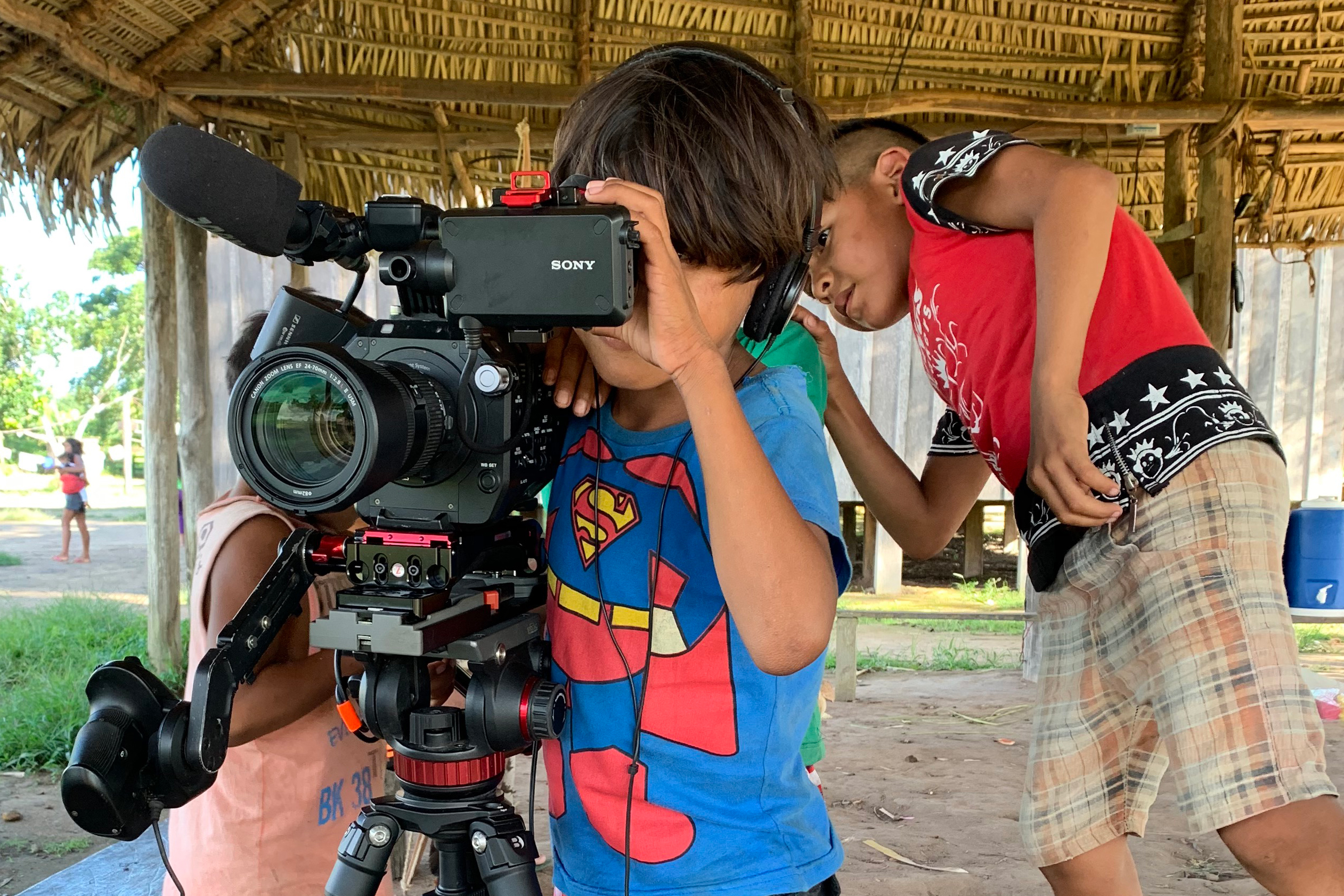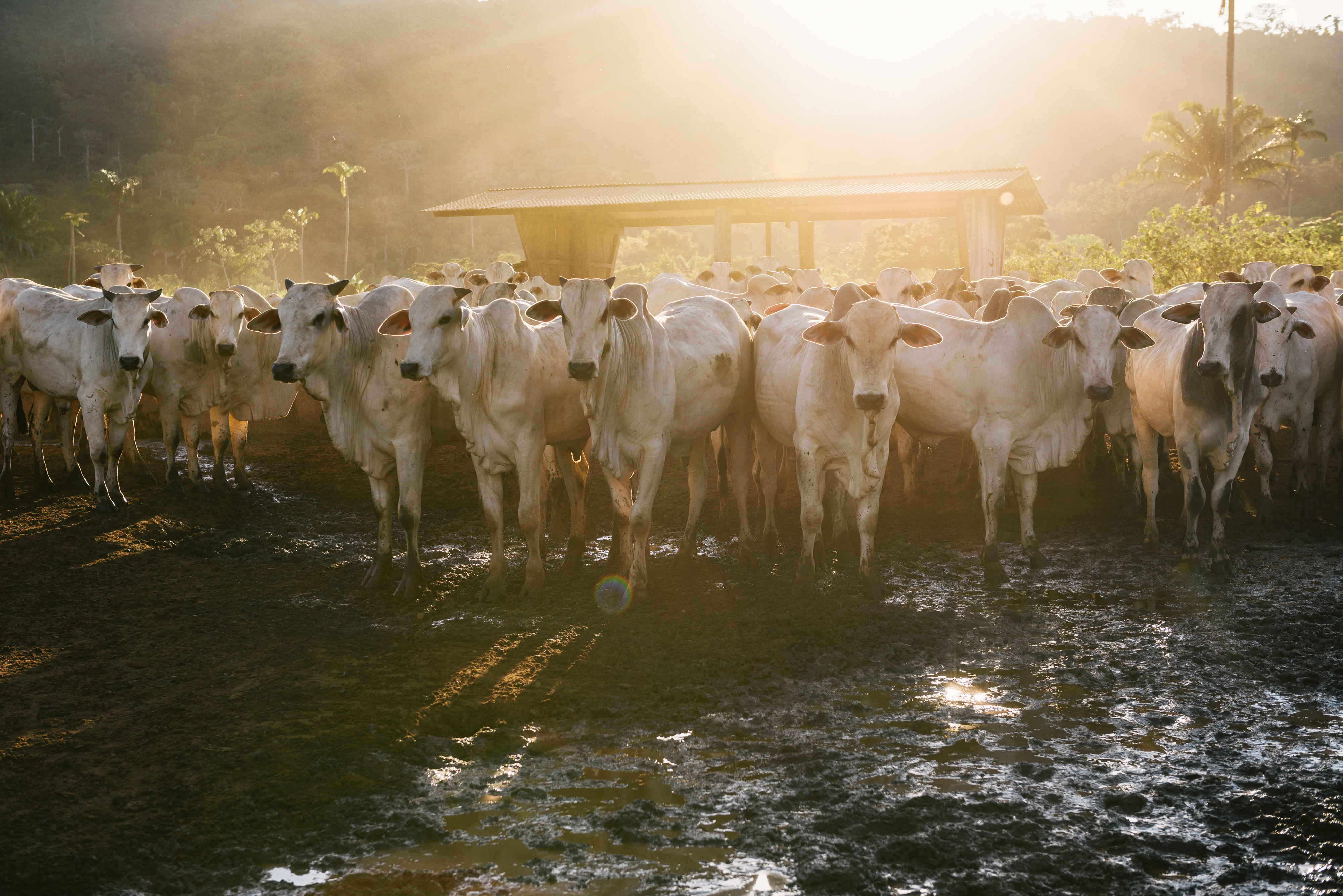Partnerships to Strengthen Science in the Amazon
TNC and UFOPA work with traditional communities to conserve the Tapajós Basin.
Innovation is a strategic tool to strengthen the conservation of nature. To stimulate the search for new ways to contribute to this agenda in the Tapajós Basin, in Brazil's Pará state, The Nature Conservancy (TNC) has been working in collaboration with the Federal University of Western Pará (UFOPA in Portuguese). Together, they are implementing projects that promote the inclusion of local communities and the appreciation of their traditional knowledge to strengthen science and conservation actions in the Amazon.
One of the projects implemented in partnership with the University and the Lower Amazon Fishermen Movement (MOPEBAM) is the Águas do Tapajós or Tapajós Waters, whose goal is protecting the freshwater ecosystems of the Tapajós Basin. The initiative collaborates directly with local and riverine communities that engage in artisanal fishing and depend on the basin's resources for their survival and activities. "The project helps strengthen the organization of fishing colonies, offering courses to train new leaders, in addition to supporting participatory mechanisms and community fishing agreements. They help improve the quality of life in communities and ensure better sustainable management of natural resources," says Ednaldo Rocha from MOPEBAM. The project also includes actions to strengthen MOPEBAM institutionally to manage conflicts related to the artisanal fishing sector and support greater participation by the surrounding communities in decision-making that affects the Tapajós basin.
Part of the project's arrangement includes support for scientific research conducted by the UFOPA team to monitor the basin's biodiversity, fisheries resources, and water quality. It also provides support for data generation to monitor the environmental impacts on the region, such as deforestation or illegal mining. "The University's mission is to bring more knowledge and opportunities to promote local and regional development. It is a great honor to carry out this project, whose goal is to encourage the sustainable use of aquatic resources and the conservation of freshwater biodiversity in the Mid and Lower Tapajós, supporting community management," says Professor Iracenir Santos, project coordinator at UFOPA.
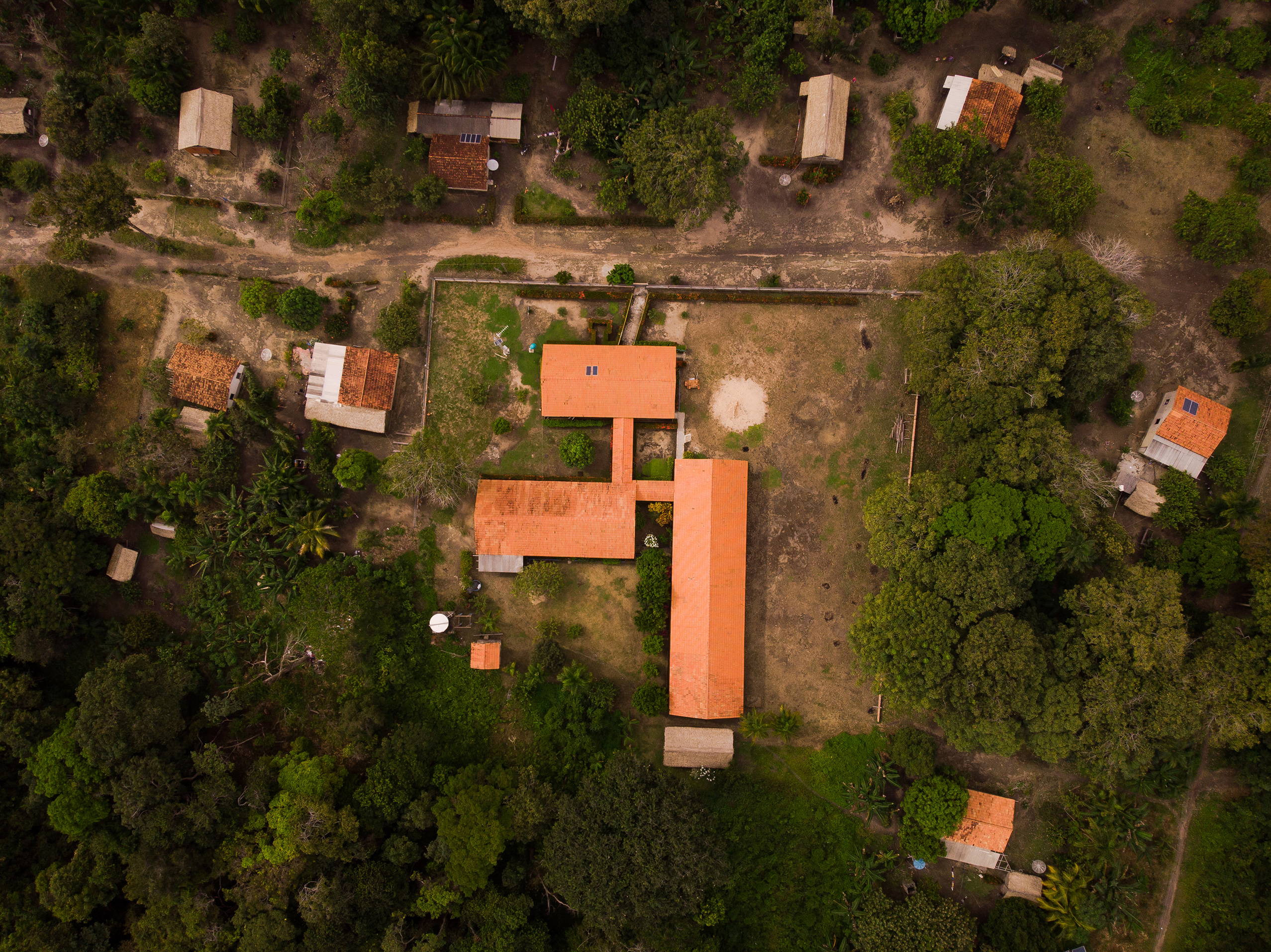
TNC also conducts data collection for research analysis in partnership with communities. Examples include monitoring fish migration with students from riverine schools through the ICTIO cell phone application, developed as part of the Citizen Science Project for the Amazon, with support from the Wildlife Conservation Society (WCS) and the Ornithology Laboratory at Cornell University. That is a way to encourage young students from primary schools to participate in scientific projects. As a result, in addition to advancing the collection of essential data for research in the Tapajós region, there is an incentive to train new researchers, arousing the interest of those young monitors in scientific research.
Sociobioeconomic Innovation
Another partnership initiative between TNC and UFOPA is the Inovatec Sociobiodiversity Project, which contributed to the inclusion of young university students from Indigenous, Quilombola, and riverine communities in research and development projects. Once the public call for proposals takes place, the project offers scholarships to students who want to conduct research to encourage community entrepreneurship and foster innovations that improve the quality of life of Indigenous, Quilombola, and riverine communities. The call for proposals selected six technological research and development projects that will take place between 2021 and 2022 in partnership with communities in the Tapajós Basin. The goal is to add value to traditional products and contribute to the implementation of new technologies.
The projects contemplated range from encouraging entrepreneurship in ceramics production by the Munduruku Indigenous People or strengthening the açaí Agri extractivist chain in the Maicá community, in Santarém in Pará. Another effort plans to develop technologies that reduce the levels of mercury consumed by Indigenous, Quilombolas, and riverine communities. Other projects support tambaqui production in fish net tanks, with feed from agro-industrial residues from the communities themselves, and the structuring of extractive value chains of cumaru, copaiba, and Brazil nuts in the Pacoval Quilombo in Alenquer, also in Pará. Those projects increase the value of forest products, improve income generation in the community, and encourage biodiversity conservation.
Quote: Helcio Souza
Traditional communities are the main partners in the protection of nature. We know that environmental protection and conservation are necessary, but so is people's quality of life.
Helcio Souza, Manager of the Indigenous Peoples and Traditional Communities Strategy at TNC Brasil, highlights the importance of fostering initiatives such as those mentioned to leverage conservation actions in the Amazon. "Traditional communities are crucial partners for protecting forests, rivers, and biodiversity. And we know that environmental protection and conservation are necessary, but so is the quality of life of the people who live in those territories. That is why it is essential to support the communities' economic sustainability strategies," says Helcio. In addition, the Inovatec Sociobiodiversity call for proposals contributes to strengthening the connection between young university students and their communities of origin. "Community leaders expect young people who go to universities to return to the communities. They also expect the students to consider the needs and realities of their communities and how their training can help them share benefits with their place of origin," adds Helcio.
Developing science-based actions, encouraging regional scientific production, and recognizing the essential role of traditional peoples and communities and their knowledge is critical to advancing conservation goals in the Tapajós Basin and throughout the Amazon. With those initiatives in the region, TNC seeks to foster a model of partnerships that strengthens science and social inclusion and can serve as a reference for all universities in the Amazon.
